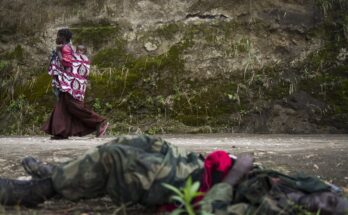The African court has declared that Rwanda has violated the rights of Victoire Ingabire, an opposition leader who tried to challenge President Paul Kagame in elections in 2010 but was convicted of threatening state security and given a 15-year prison sentence.
In an important yet largely symbolic decision, the African Court on Human and Peoples’ Rights urged Rwanda to take appropriate measures in light of its ruling, saying her trial and conviction were unfair. The court made the announcement to observers in Arusha, Tanzania on Friday and is expected to release a written judgment on Monday, Ingabire’s lawyer Caroline Buisman said.
The court ruled that Rwanda had violated Ingabire’s right to various aspects of her defense and to freely express her opinions within the law. The judges found that Ingabire had not minimized the genocide against Tutsis and had not spread false rumors about the government, charges that were central to Ingabire’s conviction by Rwandan courts.
The African court judges said Rwanda should take Friday’s decision into account and provide reparations but could not order the immediate release of Ingabire or change Rwandan law, according to Buisman, who is still waiting for the official judgment to fully discuss the ruling.
Nevertheless, Buisman said the decision was “an important day for international and African justice. The African Court of Human and People’s Rights ruled in favour of Victoire Ingabire, and found several violations of Ingabire’s rights,” she wrote on Twitter.
Ingabire was jailed in 2010 after returning from exile and openly criticizing the government. The accountant and mother of three has become a symbol of resistance in a country that brooks no dissent and has jailed or killed opponents for more than two decades.
As leader of the United Democratic Forces, Ingabire left the
Netherlands after 16 years in exile and returned to Rwanda in a bid to introduce democratic reform. On her first day in the country, she went to a memorial site to honor victims of the 1994 genocide and urge reconciliation. She acknowledged that Tutsis were victims of genocide yet questioned why there were no memorials to honor Hutus, who were also targeted in the violence that engulfed the nation. She insisted that individuals who committed genocide and crimes against humanity should be prosecuted. Her speech appeared to dispute the RPF’s official narrative of the genocide and was viewed as a tacit call for members of Kagame’s army to be prosecuted for committing massacres against Hutus in 1994. It also exposed the difficulty of reconciliation in post-genocide Rwanda.
In her first few months in the country, Ingabire, an ethnic Hutu, tried to register her party and appeared to be on the verge of mounting a serious electoral threat to Kagame. She was swiftly arrested and charged with inciting revolt, promoting genocide ideology, provoking divisionism and forming an armed group to destabilize the country. She denied all the charges.
In 2012, Kigali’s High Court found her guilty of genocide denial, terrorism and conspiracy to undermine the government, sentencing her to eight years in prison. Human Rights Watch and Amnesty International said the trial was flawed and suggested that witnesses may have been intimidated and coerced into giving false testimony. Ingabire appealed to the Supreme Court.
In 2013, the Supreme Court largely upheld her conviction — finding her guilty of threatening state security and minimizing the genocide — and increased her sentence to 15 years.
Ingabire requested that the African court hear her case, asking that the conviction be annulled, that Rwanda review her case, issue reparations and immediately release her. Despite Friday’s ruling, her lawyer suggested there is indeed a precedent for her release.
Her supporters have accused authorities of trying to break her spirit. Over the last seven years in jail, Ingabire has suffered a host of health problems. She has been harassed and subjected to varying degrees of isolation. Visits from friends and supporters have been drastically restricted, her personal effects have all been taken away and she is prohibited from speaking to fellow prisoners, according to her party.
In September 2017, several of Ingabire’s party members were arrested and charged with forming an armed group and offending the president. The arrests and charges were part of a wider crackdown on political opponents since August 2017 when Kagame won 99 percent of the vote in a presidential poll. Authorities have been accused by human rights groups of detaining, threatening and forcibly disappearing a number of critics.
The regime is currently targeting Diane Rwigara, a Tutsi survivor and a new, rare champion of free speech. The 35-year-old accountant was barred from running for president and accused of forgery. She has stated that Rwandans face “death or prison” when they speak out against the government.
In September 2017, authorities arrested Diane, her sister and mother and charged them with inciting insurrection. She and her mother were denied bail and remain in custody. Diane Rwigara has accused the regime of murdering her father Assinapol Rwigara, an industrialist who fell out with authorities and died in a suspicious road accident in 2015.
Judy Rever


